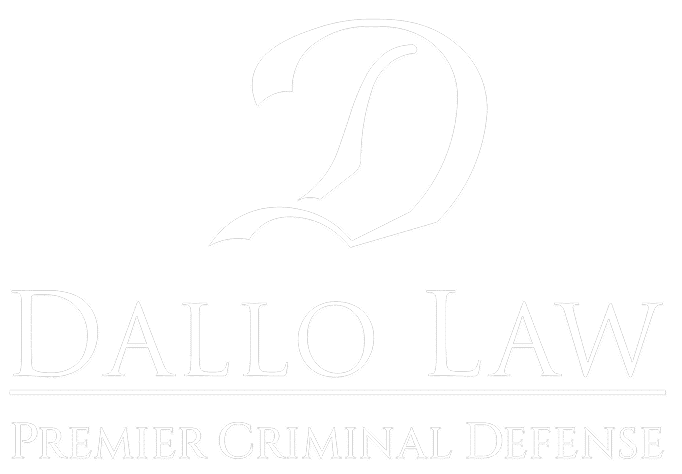Oakland County White Collar Crimes Attorney
Helping You Navigate the Complex Legal System to Protect Your Freedom and Professional Reputation
White-collar crimes involve someone in a professional position at a business or other organization using deceit, dishonesty, breach of trust, or other unsavory means for unlawful financial gain.
Many people unfamiliar with criminal law believe that the penalties for white-collar crimes are minor. Unfortunately, this could not be further from the truth. Offenders convicted of white-collar crimes could face years in prison and extensive fines that could cause anyone to go bankrupt. You must tackle your defense immediately if you have been accused of a white-collar crime. The longer you wait, the less time you have to build a formidable defense that will cast doubt on the prosecution’s case.
Charges of identity theft, fraud, embezzlement, or other white-collar crimes could ruin your reputation and have a lifelong impact on your career and family. Therefore, securing legal representation as soon as possible is essential when fighting these charges.
Dallo and his legal team at Dallo Law have the experience and knowledge to fight your white-collar crime charges. He can provide counsel throughout the entire legal process and thoroughly explore every legal route available, so no stone is unturned. Dallo Law accepts clients throughout the greater Oakland County and Macomb County area, including Clinton Township, Romeo, Fraser, New Baltimore, New Haven, Warren, Sterling Heights, Pontiac, Troy, Waterford Township, Clarkston, Southfield, Royal Oak, and Bloomfield Hills.
Schedule your initial consultation with criminal defense attorney J. Dallo today.
How Are White Collar Crimes Investigated?
White-collar crimes are typically complex and may involve multiple people or organizations. Because of their multifaceted nature, investigations may take months or even years to make a single arrest. Law enforcement is incredibly cautious when conducting white-collar criminal investigations, as they usually try to investigate the crime undetected. Often, the subject of a white-collar investigation is unaware that they are being surveilled or observed.
If an alleged crime crossed state lines during its commission, then a federal agency like the FBI, SEC, or NASD (National Association of Securities Dealers) will likely get involved. These investigations are even more complicated as they can involve both national and international entities. Corporate fraud, in particular, continues to be one of the FBI’s highest criminal priorities. When encountering these crimes, the Bureau focuses on cases involving corporate executives’ self-dealing, obstruction of justice, and accounting schemes.
Suppose you believe there is even a small chance that law enforcement authorities may be investigating you for white-collar crimes. In that case, you must hire an experienced criminal defense lawyer who can help prepare you for what may come next. Individuals accused of white-collar crimes typically face arrest, loss of professional licenses, and a permanent criminal record that could negatively impact their ability to obtain future employment.
J Dallo is an experienced White Collar Crimes attorney located in Oakland County who understands the nuances of criminal offenses and what it takes to get results.
What are Examples of White Collar Crimes in Michigan?
Most defendants accused of white-collar crimes are charged under Michigan law. However, certain circumstances may also cause you to be brought up on federal charges. Attorney Dallo at Dallo Law has encountered many legal scenarios when defending white-collar crimes, including cases ranging from simple cases of check forgery to multipart financial schemes involving multiple corporations.
The following are some examples of white-collar crime cases we at Dallo Law handle:
- Identity Theft: Using another person’s name, credit card number, social security number, or any other personal identifying information to acquire goods, credit cards, services, loans, or other bank accounts. A first-time identity theft offense can result in up to 5 years in prison and a $25,000 fine.
- Embezzlement: Stealing from your employer in any way is considered embezzlement. When most people hear embezzlement, they think of intricate financial schemes involving multiple bank accounts. However, embezzlement is not always so complex. For instance, a person can be charged with embezzlement for stealing from the tip jar. The penalties for the crime depend on the value of the money or property stolen. If the value of the money or property embezzled is over $1,000, you will face a felony charge.
- General Fraud: General fraud may include business transaction fraud, falsifying payroll information, or unemployment insurance fraud, all qualifying as white-collar crimes. A general fraud conviction could result in up to 14 years in prison and a fine of $25,000.
- Healthcare Insurance Fraud: Falsifying information to obtain a specific healthcare benefit or plan is a serious offense under Michigan law. The crime can be committed in various ways, including impersonating another person to receive their benefits, providing false information, or tampering with a paper or digital system. Some cases have in-depth investigations that last years and could even involve federal charges. A conviction for healthcare insurance fraud is up to four years in prison and a fine of up to $50,000.
- Forgery: Altering, forging, or creating a counterfeit public record of any kind, such as a bond, will or testament, charter, letter of attorney, or insurance policy, is a crime in Michigan. The penalties for the crime vary depending on the circumstances of the case. A conviction for forgery could result in a prison sentence of up to 14 years, expensive fines, and court-ordered restitution costs.
- Check Fraud: One of the oldest white-collar crimes in the book is check forgery, and even though checks are not as widely used today as they were twenty years ago, that does not mean check fraud is uncommon. “Uttering and publishing” a check without authorization to do so is a serious crime in the state of Michigan. Any offense related to check fraud is classified as a felony and carries a harsh sentence, including years in prison and expensive thousand-dollar fines.
- Credit Card Fraud: One of the most common white-collar crimes committed in Michigan is the fraudulent use or possession of another’s credit or debit card information. However, just because the crime is frequently committed does not mean the state does not impose strict penalties. Illegally possessing, stealing, using, or forging a financial transaction device without the authorized user’s consent could result in felony charges, which means possible time in prison.
- Public Corruption: Public officials are held to a high standard by their community. They have a duty to serve their region with respect and remain ethical to Michigan’s legal statutes. When officials are accused of abusing their power for personal gain, they may face criminal prosecution and removal from office.
How are Economic Crimes Prosecuted?
White-collar crimes may be prosecuted in state and federal court. For example, tax evasion may be tried in state or federal court. However, crimes such as healthcare fraud or insider trading are prosecuted in federal court.
Whether the case is heard in state or federal court, judges can impose stiff penalties for those convicted of white-collar crimes. Prosecutors and judges often want to make a public example of those who have been convicted of white-collar crimes to try to dissuade others from repeating similar actions.
Nevertheless, it is common for prosecutors and defense attorneys to negotiate a plea deal to avoid a long and expensive trial. An example of a deal is pleading guilty to lesser charges in exchange for the prosecution dropping the more serious counts.
Plea deals also come as restitution, paying back what was illegally taken. These plea negotiations require skilled and experienced attorneys who will not shy away from going to court if a better result can be obtained by fighting the charges in court. Having an attorney on your side with a significant courtroom presence, such as J. Dallo from Dallo Law, will give you the advantage you need to avoid the full statutory penalties.
Our Oakland County White Collar Crimes attorney is fearless in taking on challenging cases and will fight to help you obtain a favorable outcome for your case.
How Does Federal Prosecution of White-Collar Crimes Differ From State Charges?
One of the most common worries for a person charged with a white-collar crime is the case being tried in federal court. White-collar crimes tried in federal courts are considered more serious than those heard in Michigan courts and can result in severe penalties. White-collar crimes that frequently make their way into federal courts include healthcare fraud, Ponzi schemes, cyber-crimes, and those that involve federal resources.
The United States Attorney’s Office is responsible for trying all cases in federal court, while state prosecutors try those in Michigan courts. Another critical difference is that federal prosecutors have significantly more resources to investigate and try cases.
Federal white-collar crime investigations often take significant time to complete, as the prosecution must ensure that its case will withstand legal scrutiny.
Finally, if your case is being tried in federal court, the penalties are typically significantly higher for those who are convicted than in state court. For example, federal laws include minimum and mandatory sentencing guidelines.
Regardless of what court your case may be tried in, you need an experienced criminal defense lawyer who understands the intricacies of white-collar crime laws. Dallo Law is an Oakland County criminal defense law firm with considerable experience handling state and federal cases and obtaining the best possible results for clients.
Contact us today to learn how to schedule an initial consultation with our Oakland County white-collar crime lawyer so we can assess your case.
Why Should I Trust Dallo Law to Defend Me Against White Collar Crime Charges?
The team at Dallo Law has defended countless professionals over the years who were worried about losing their freedom, reputation, and standing in the community. Worried might be an understatement; terrified is a better description of the mental state of those who are faced with white-collar felony charges. If this sounds familiar, act quickly to call Dallo Law. Attorney J. Dallo will help you find the best possible strategy to fight the charges and clear your name.
If we agree to take your case, we will use our legal and financial resources to conduct an independent investigation. We will also thoroughly assess evidence to determine the strengths and weaknesses of the government’s or state’s case and determine what legal strategies will work in your favor. Attorney Dallo is a skilled negotiator who is not afraid to stand up to the prosecution to help you obtain favorable results.
Speak With Our Oakland County White Collar Crimes Attorney
Our Oakland County law firm understands this can be one of the most challenging issues you and your family will ever face. However, the first step to protecting your rights and freedom is to contact our Oakland County white-collar crime lawyer, J Dallo, so we may begin planning your defense. Dallo Law accepts clients throughout the greater Oakland County and Macomb County area, including
- Pontiac,
- Troy,
- Waterford Township,
- Southfield,
- Clarkston,
- Novi,
- Rochester,
- Utica,
- Armada,
- Clinton Township,
- Warren,
- Sterling Heights and Mount Clemens.
If you or someone you know has been charged with a white-collar crime, contact Dallo Law at 248-290-9962 to schedule your initial consultation and learn more about our legal services.


